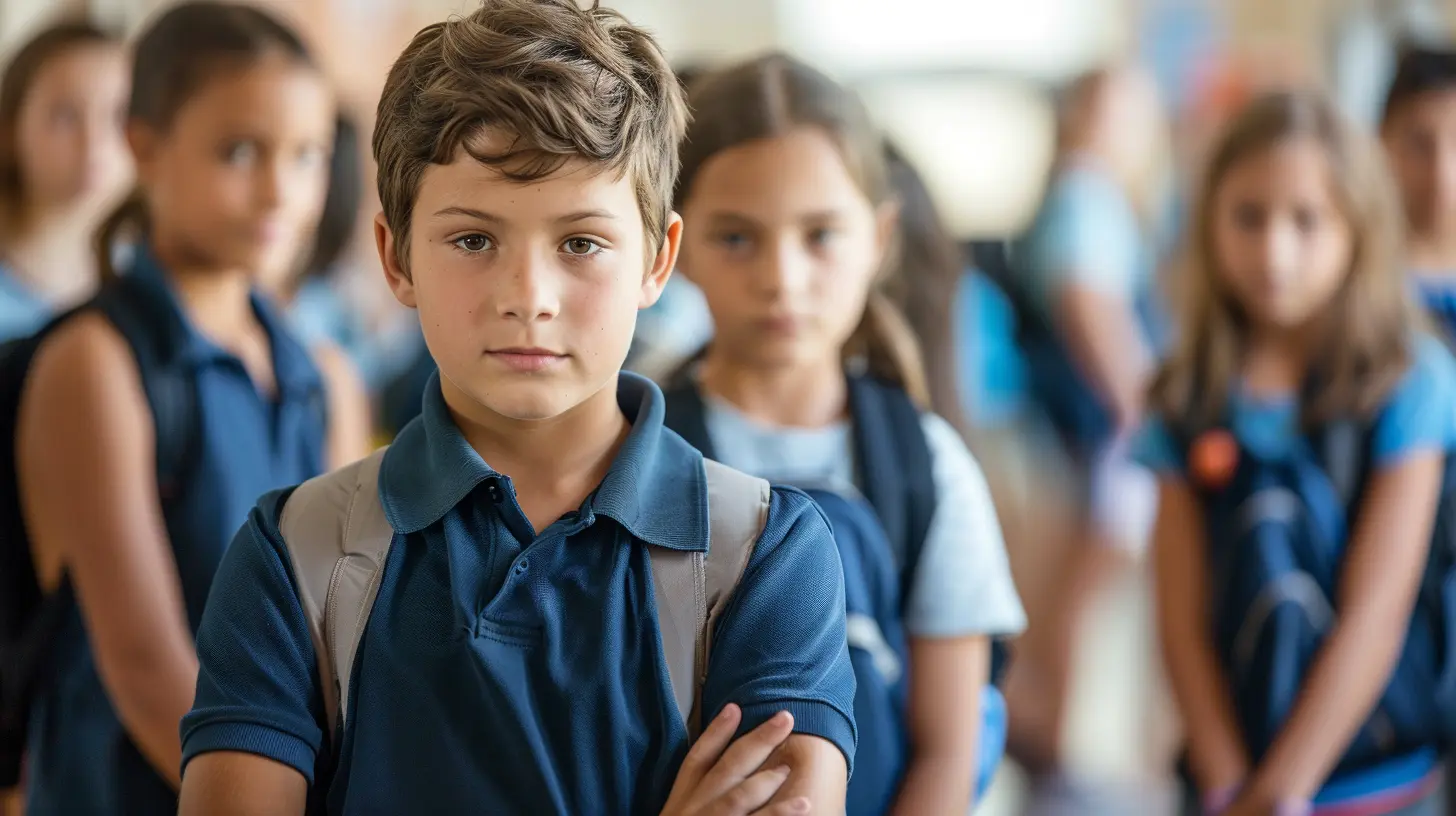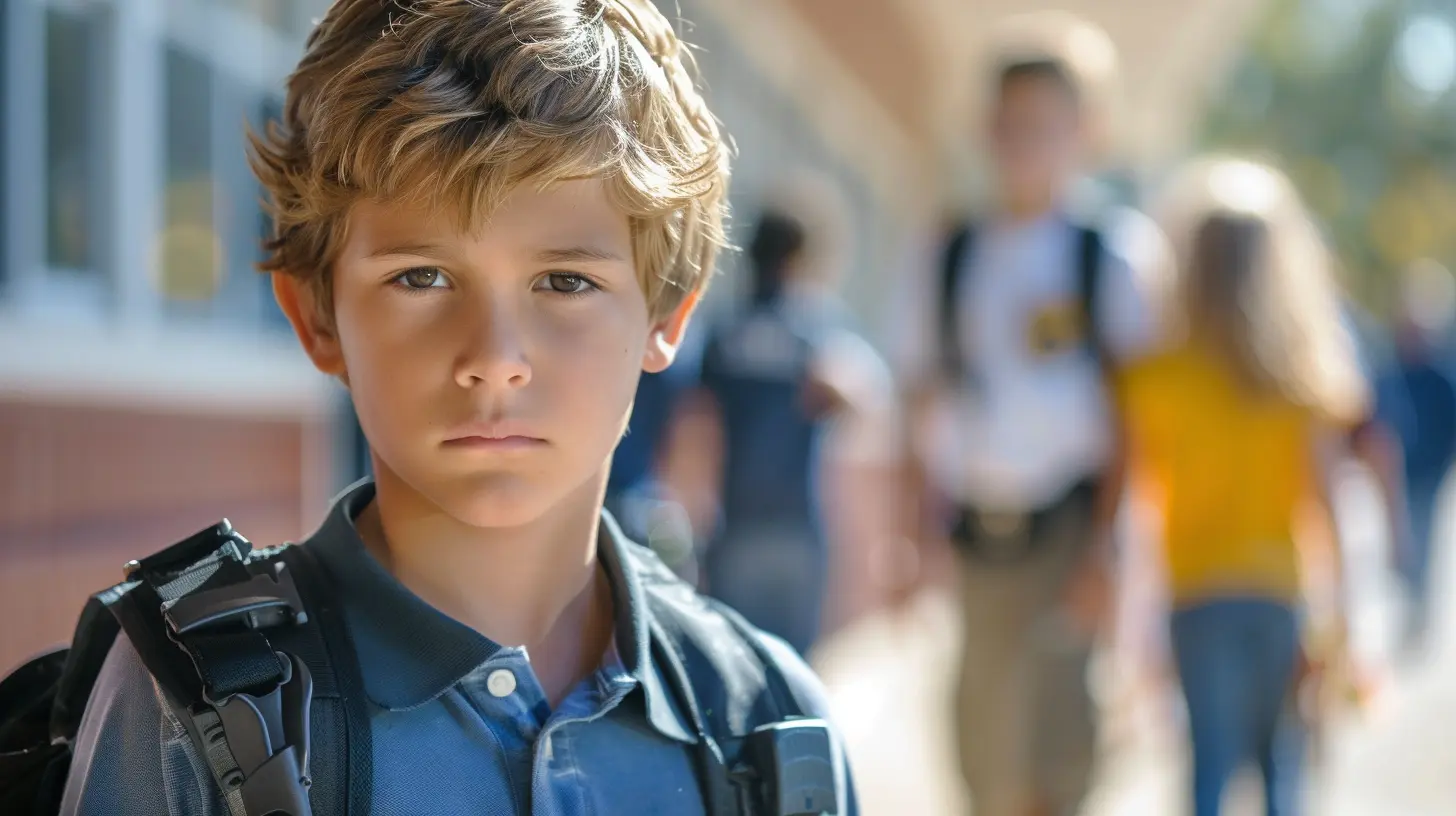The Role of School Safety Officers in Bullying Prevention
7 August 2025
Bullying is a serious concern that affects students' well-being, academic performance, and emotional health. It’s not just about kids being mean to each other—it can have long-term consequences that follow individuals into adulthood. That’s where school safety officers (SSOs) step in. They play a critical role in preventing bullying, ensuring that schools remain a safe haven for learning rather than a battleground of intimidation.
But what exactly do these officers do to prevent bullying? Do they just watch over the hallways, or do they have a bigger impact? Let's dive deep into how school safety officers contribute to preventing bullying and fostering a secure school environment.

What Is a School Safety Officer?
A school safety officer is responsible for maintaining a safe and secure environment within a school. Their duties include monitoring school grounds, enforcing school policies, and responding to security threats, but their role goes beyond just handling emergencies.They serve as mentors, protectors, and trusted adults whom students can turn to when issues arise—including bullying. They are not just security guards; they are peacekeepers, relationship builders, and a crucial part of the school community.

The Link Between School Safety and Bullying Prevention
Bullying thrives in environments where there is little supervision, weak enforcement of rules, or a culture of "mind your own business." A school safety officer helps close these gaps and ensures that students understand the consequences of bullying while also feeling safe to report incidents without fear of retaliation.They contribute to bullying prevention in several key ways:
1. Monitoring and Supervision
Bullies often take advantage of areas with little adult supervision—hallways, cafeterias, playgrounds, and restrooms. School safety officers patrol these areas, keeping a watchful eye on student interactions. Their presence alone can discourage bullying, as potential aggressors know they're being watched.Think of them as lifeguards at a pool—just knowing they’re there makes people think twice before behaving recklessly.
2. Building Trust with Students
For students to report bullying, they need to trust the adults around them. SSOs build rapport with students, making them feel comfortable enough to share their problems.When students know there’s an approachable, compassionate authority figure available, they are more likely to report bullying incidents rather than suffering in silence.
3. Intervening in Conflicts Before They Escalate
School safety officers are trained to identify early signs of conflict. They can step in before a minor disagreement turns into full-blown bullying. By mediating disputes, they help students resolve issues peacefully rather than letting tensions escalate.It’s like putting out a small fire before it turns into a massive blaze. Addressing conflicts early prevents long-term harm to the students involved.
4. Educating Students on the Consequences of Bullying
Many bullies don’t fully understand the impact of their actions. School safety officers conduct awareness programs to educate students on how bullying affects others emotionally and psychologically.By sharing real-life stories and engaging students in discussions, SSOs help develop empathy, making potential bullies think twice before harming someone.
5. Encouraging a Culture of Reporting
One of the biggest challenges in bullying prevention is the fear of retaliation. Victims and even bystanders may hesitate to report incidents because they fear being targeted next.School safety officers help break this cycle by:
- Educating students on how to report bullying anonymously.
- Working closely with teachers and counselors to ensure reported cases are handled swiftly.
- Ensuring that victims are protected after they report incidents.
When students see that actions are taken against bullies and that reporting is safe and effective, more cases get addressed, and bullying decreases.
6. Training Teachers and Staff
SSOs don’t work alone. They collaborate with teachers, administrative staff, and counselors to create a united front against bullying.They provide training sessions that help school staff identify bullying behaviors, enforce anti-bullying policies, and support students facing harassment.
A well-trained school staff amplifies the anti-bullying message, making it clear that bullying won’t be tolerated.
7. Offering Support to Victims
Victims of bullying often feel isolated and powerless, which can lead to depression, anxiety, and even a decline in academic performance. School safety officers play a big role in supporting these students.They:
- Listen to victims without judgment.
- Connect them with counselors for emotional support.
- Ensure their safety from further harm.
Just knowing that someone has their back can make a world of difference for students experiencing bullying.

The Challenges School Safety Officers Face
While SSOs do incredible work, they also face challenges that make their job tough.Limited Resources and Staff
Many schools are short-staffed when it comes to security, leaving SSOs stretched thin. This can make it hard to monitor every problem area within a school effectively.Resistance from Students or Parents
Not all students view SSOs in a positive light. Some may see them as authority figures to rebel against, while some parents might believe that increased security creates a restrictive environment.Keeping Up with Cyberbullying
A growing challenge in bullying prevention is cyberbullying—harassment that happens online or through social media. It’s harder to monitor, and victims may not come forward until serious damage is done.To combat this, SSOs educate students on responsible digital behavior and work closely with school administrators to address online harassment issues.

Ways Schools Can Support Their Safety Officers
School safety officers can’t fight bullying alone. Here’s how schools can empower them to be even more effective:✅ Increase training programs to help SSOs stay updated on the latest bullying prevention techniques.
✅ Hire additional personnel so that officers are not spread too thin.
✅ Encourage open communication between students and SSOs, reinforcing that they are allies, not enforcers.
✅ Incorporate mental health support so students have access to counselors alongside safety officers.
By providing adequate resources and support, schools can maximize the impact of their safety officers in creating a bully-free environment.
Final Thoughts
The role of school safety officers in bullying prevention cannot be overstated. They are more than just security personnel; they are mentors, protectors, and mediators in the lives of students.Through their watchful presence, ability to build strong relationships, and efforts in educating students, they help create a school culture where bullying is not tolerated and where every student feels safe and valued.
If schools, parents, and students all work together with SSOs, we can ensure that bullying becomes a thing of the past—one safe school at a time.
all images in this post were generated using AI tools
Category:
Bullying PreventionAuthor:

Anita Harmon
Discussion
rate this article
1 comments
Harrison McClain
Empowering officers transforms school safety into a bullying deterrent.
September 3, 2025 at 3:38 AM

Anita Harmon
Absolutely! Empowering officers enhances their ability to foster a positive environment, making them key allies in bullying prevention and overall school safety.


